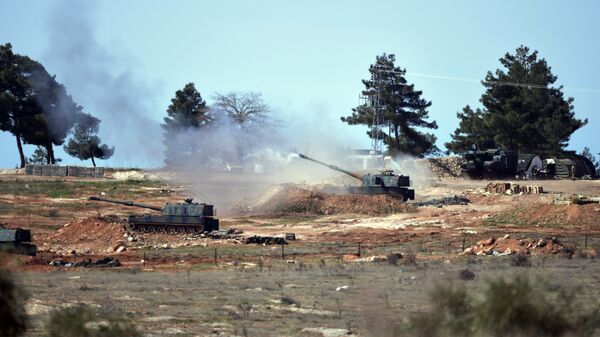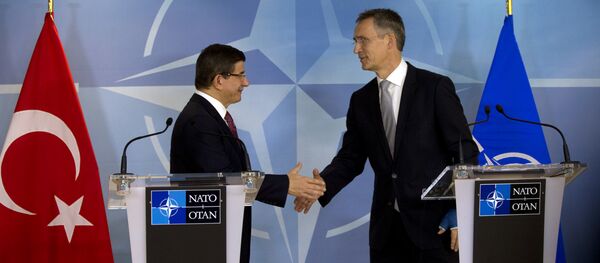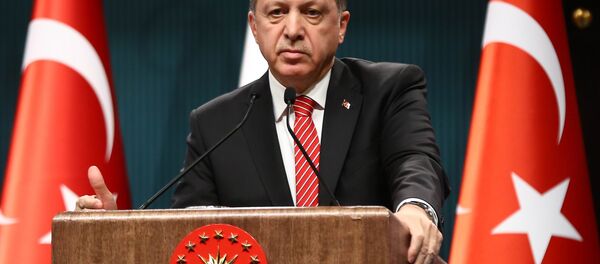At the same time, with the UN Security Council calling on Turkey to cease its attacks against Kurdish positions, Ankara remains intransigent, discussing a possible ground operation in Syria.
Asked to comment on the unfolding situation by Sputnik Turkey, Syrian political scientist and Aydinlik newspaper columnist Mehmet Yuva said that the situation which has emerged today surrounding Turkey and the Syrian crisis reminds him "of a grenade with the pin pulled out, with Ankara left holding the explosive."
"Turkey has reached a stage characterized by a loss of initiative and a loss of influence in the Syrian crisis," Yuva explained. "Due to their short-sightedness on Syrian policy, the ruling Justice and Development Party is facing a political dilemma. In the current situation, both a Turkish invasion of Azaz and the lack of such a step would have serious consequences."
"Prime Minister Mehmet Davutoglu once called the territory west of the Euphrates a 'red line' for Turkey. It is this 'red line' which has created the contradictory situation. If Turkey considers Syrian Kurdish militia as 'terrorists', just as it does rebels from the Kurdistan Workers' Party (PKK), why don't the Turkish armed forces carry out military operations to the east of the Euphrates as well? After all, to date, it is there that the YPG maintains a serious military presence. It turns out that Ankara considers YPG forces to the west of the Euphrates 'terrorists', and those in the east – as 'moderate opposition'."
"Syrian Kurds," the analyst noted, "have acted very shrewdly, working closely with all the influential players – Russia, the United States, and Syrian authorities themselves. This tactic has allowed them to strengthen their military and political positions in the region."
Ankara's ambitious plans to establish a 'zone of influence' in Syria stretching from Latakia to the Western Euphrates, meanwhile, have been demolished by the Russian air operation in support of the Syrian government, and the Turkish government, the analyst suggests, has no one to blame but themselves for their failure to cooperate with Moscow to take steps to settle the Syrian crisis peacefully.
"Unfortunately, Turkey did not take any serious steps toward Russia, which offered to solve the problem through dialogue with the countries of the region. As a consequence, Turkey is now feeling the loss of influence in the area. Moreover, Ankara is more and more concerned that YPG forces (and for Turkey that group is little different from the PKK), will take control of the majority of the Turkish-Syrian border — from Hatay in the west to Botan near the Iraqi border, thus turning into Turkey's de facto southern neighbor."
"All this points to only one magic formula out of this dilemma: if Ankara really wants to prevent Syria's collapse, it must start looking for opportunities to establish cooperation with Syrian authorities and the Syrian army. Otherwise, the confrontation in Syria will take on more and more acute forms, posing a threat not just to the territorial integrity of Syria, but to that of Turkey itself."






